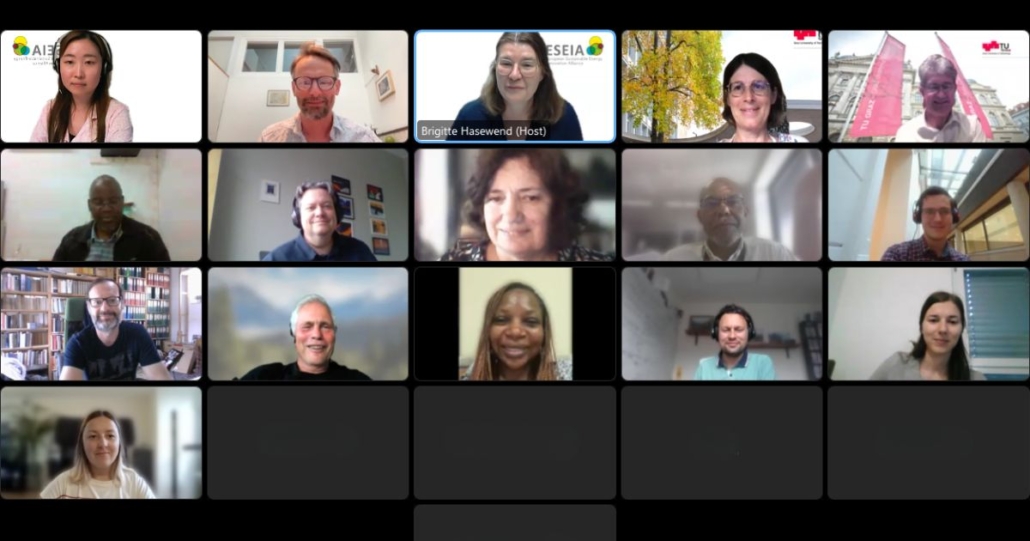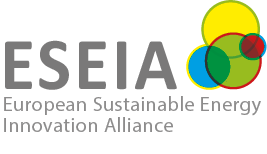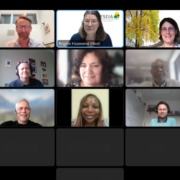ESEIA Lecture Series: Fifth Lecture Explores the Water-Energy-Food-Ecosystem Nexus
On 22 June 2023, the fifth lecture in the ESEIA Lecture Series offered the opportunity for participants from 8 countries from the EU and AU to explore the Water-Energy-Food-Ecosystem (WEFE) Nexus and its pivotal role in achieving sustainable development.
Under the title Water-Energy-Food-Ecosystems in Sustainable Communities in the EU and Africa, the event took place online from 19:00 to 21:00 CEST, featuring two lectures delivered by Thomas Schauppenlehner, from the University of Natural Resources and Life Sciences, Vienna (BOKU), and Richard Wheeler, EU Project Advisor from ESEIA. Organised by ESEIA in cooperation with the Graz University of Technology (TU Graz), the Afro-Asian Institute Graz, and the Austrian Universities of Technology (TU Austria), the event is part of the hybrid series Sustainable Energy Innovation Systems for Climate Neutrality.
The ESEIA President and Rector of TU Graz Harald Kainz, and the ESEIA Director Brigitte Hasewend, opened the session by welcoming the participants and stressing the need for systemic solutions to tackle the challenges of water, energy, and food availability. Then, the Professor at the Institute of Urban Water Management and Landscape Water Engineering at TU Graz Daniela Fuchs-Hanusch, who chaired the event, pointed out the interdependence of water, energy and food and ecosystems and invited the speakers to share their perspectives and experiences on the Nexus approach to sustainable development.
The Senior Scientist at the Institute of Landscape Development, Recreation and Conservation Planning at BOKU Thomas Schauppenlehner presented the GLOCULL project, an international and transdisciplinary project funded by the Sustainable Urbanisation Global Initiative (SUGI) to support the implementation of an Urban Living Lab approach for sustainable food-water-energy innovation in seven countries (The Netherlands, Germany, Austria, USA, Brazil, Sweden and South Africa).
He noted that it is challenging for local actors to understand how solutions to one issue might affect others in the WEF Nexus. The project aimed to address this challenge by developing participatory assessment tools that allow policymakers and stakeholders to assess the impact of different innovations or actions on WEF flows at different levels. The Urban Living Lab in Austria, for example, focused on agrovoltaics in urban and peri-urban areas, providing the evidence base and fostering public discussion on their role in linking agricultural activities with renewable energy production.
The EU Project Advisor at ESEIA Richard Wheeler used the EU proposal ARENA to provide insight into the WEF Nexus innovation in Africa. He started by pointing out that Africa is rich in renewable energy sources. However, the renewable energy revolution is not yet evident and is bound to different factors such as location, culture and socio-economics. In urban areas of Nigeria, for example, many households still rely on generators running on petrol or cooking oil for their electricity needs.
ARENA aimed at understanding these needs and proving WEF Nexus component designs that are open and can be built, maintained and adapted to local circumstances by local citizens. He added that by transferring emerging concepts from Europe, ARENA aimed to support and enhance the local innovation ecosystems in Africa, with the ultimate goal of replicating successful methods and facilitating sustainable development across the continent.
Through the insights shared during the presentations and the discussion that followed afterwards, the speakers showed that the WEFE Nexus approach is crucial to paving the way for a sustainable and resilient future amidst the challenges posed by climate change and population growth.

Thank you to the speakers, the participants, the chair Daniela Fuchs-Hanusch, the host Harald Kainz, and all those who have contributed to bringing the last lecture of the spring/summer 2023 semester to life!
The ESEIA Lecture Series will return on 21 September 2023 with the guest lecture titled De-Fossilization of Industry and Mobility: How can it work?, delivered by George Brasseur, former President of the Division of Mathematics and the Natural Sciences of the Austrian Academy of Sciences. Check out the details and register before 19 September 2023 to reserve your seat!
Contact:
ESEIA Team: office@eseia.eu


